Delta Waterfowl’s Duck and Goose Hunting 101 Course
From The Duck Hunters Organization, learn all the skills and
knowledge you’ll need to enjoy successful duck and goose
hunting on your own or with your friends.
$29.99
Why Choose this Course?
Delta Waterfowl Members Welcome You to the Excitement of Waterfowl Hunting
This course was developed by Delta Waterfowl—The Duck Hunters Organization—for you to quickly and enjoyably learn everything you’ll need to know to make your first duck or goose hunt. It was purpose-built as a premier learning tool in partnership with Today’s Hunter, the leading provider of online hunter safety courses for state agencies and consumers in North America. This course provides all of the knowledge you’ll need to put you into position to legally, ethically, and enjoyably take your first duck or goose.
Easy Learning System
Quick-read text, photos, videos, and key external links are combined throughout the course to make the information easy to learn and retain—and make it nearly as much fun as waterfowl hunting itself.
The Fastest, Easiest Way to Learn How to Hunt Ducks and Geese
Easy, self-paced learning whenever and wherever you want it. Each unit is engaging and often followed up with a quick review quiz. The course keeps track of your progress and automatically takes you to where you left off each time you return.
Free Gift From Delta Waterfowl
When you purchase and complete the course, you will be eligible to receive a free graduation gift from the Duck Hunters Organization.
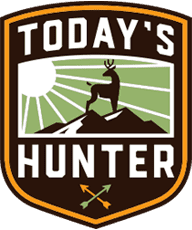
Delta Waterfowl
Delta Waterfowl is The Duck Hunters Organization. Its mission is to produce ducks and secure the future of waterfowl hunting in North America. Its success relies on science-driven programs in Duck Production, Habitat Conservation, Research and Education, and HunteR3, which includes recruitment, retention, and reactivation of hunters as well as Defending the Hunt efforts.
Thousands of Delta Waterfowl members, volunteers, and donors across the United States and Canada generously support the organization and its important work. To find out more about how you can play a part in the future of waterfowl hunting, learn more about The Duck Hunters Organization by finding chapters and events near you.
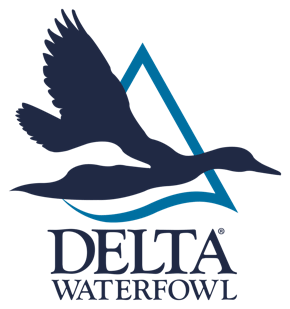
Intro to Duck and Goose Hunting
There are at least a million waterfowl hunters in America who would tell you they think duck and goose hunting is the greatest outdoor pursuit. While each hunter would put it in his or her own words, it boils down to there simply being so much to duck and goose hunting.
Great hunts can happen anywhere: floating by yourself in a kayak down a local river, adventuring on the most remote islands in Alaska, and everywhere in between. Waterfowl hunting offers variety, puts you in control, becomes a lifestyle, keeps you in the field, connects you with great dogs, is the most social kind of hunting, and is rich in both traditions and technology.
The members of Delta Waterfowl are so happy you’ve chosen to take this course. It gives us an opportunity to share with you the feelings of joy and excitement that are such a big part of our lives. We’ll take pride in you seeing these wonderful things for the first time and in your hunting accomplishments as you make them.
Learn How to Hunt Ducks and Geese Successfully
Duck Hunting
Finding a place to hunt begins with understanding what ducks and geese need at the time you’ll be hunting them. On any given day of the hunting season, the birds need food, water, and a place to be safe and undisturbed. Where they meet those needs varies depending on species.
Diving ducks—like scaup, canvasbacks, and redheads—dive to the wetland bottom to feed on invertebrates and aquatic vegetation. With rare exceptions, they feed exclusively in wetlands, including rivers and lakes, some of which they visit each year during their migration. Puddle ducks are typically found in shallow wetlands where they can reach underwater food items by “tipping up.” They eat seeds, invertebrates, and aquatic vegetation. If fall rains flood crop fields or natural areas with abundant seasonal wetland plants, these spots can be highly attractive to many ducks.
How to Retrieve—With or Without a Dog
A well-trained retriever will boost the number of ducks and geese you add to your bag. It is said that hunting with a good retriever is the greatest conservation measure a waterfowl hunter can take. Yet, as a newcomer, you won’t always have a dog to help you out, so it’s critical you learn how to find downed birds on your own. The key considerations are to consider your drop zone, visually lock on to falling birds, work as a team, shoot one bird at a time, and immediately go to the mark.
When you’re fortunate enough to hunt in the company of another hunter and his well-trained retriever, the most important thing to do is ask the owner how he or she wants you to interact with the dog. Most of the time, it’s best if you just concentrate on safely shooting birds while allowing the finely tuned team to do their thing. Thanking them both for bringing your birds to hand can wait until the hunt is over.
Duck and Goose Hunting Tips and Strategies
As this course was developed, we sought the advice of veteran waterfowl hunters from across the United States and Canada. As they critiqued its content, they commonly shared one thought: “Gee, I forgot how much there is to learn about duck and goose hunting. This course will be a great help in teaching the basics we too often take for granted.”
With that advice, that’s exactly what this course sets out to do. We share the knowledge and skills you’ll need to enjoy your first duck or goose hunt, whether it’s with a mentor, with friends, or on your own.
Here’s a sample of some of the tips and tricks covered in full detail in the course:
- How to scout for ducks and geese before and during hunting seasons
- Tips for identifying ducks and geese in the air and in your hand
- The basic gear you’ll need and how to put together an economical hunting rig
- Decoying strategies for ducks and geese on the water and in harvested fields
- The calling skills to get you started hunting puddle ducks and geese
- How to quickly build an inexpensive jerk rig to create natural water movement
- Step-by-step instructions on how to clean the ducks and geese you bag
- Easy, printable recipes for preparing delicious meals from any species of ducks or geese
- How to identify and begin treatment of hypothermia in an emergency
- The simple, ethical steps that will make you welcome to hunt on private or public lands
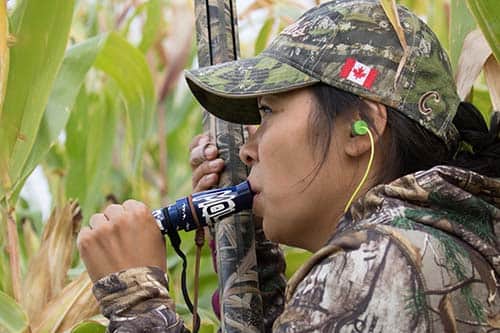
Waterfowl Calling
One of the great things about hunting waterfowl is that they respond to calling. The direct connection of “talking to the animals” you are hunting makes it special. Since calling is also such a part of the lore of waterfowl hunting, it’s natural you’ll want to know how to do it. Even if you only make simple quacks or honks, calling can make a difference in bringing birds into range, and it can be especially valuable in areas where ducks and geese may have difficulty seeing your decoys. The best place to begin learning to call ducks and geese is the birds themselves. When you’re scouting, and in the off season, try to spend as much time as you can watching and listening to undisturbed ducks and geese. Memorize the sounds they make and the other birds’ reactions to those sounds.
Waterfowl Decoys
Understanding decoying and concealment are among the most important keys to waterfowl hunting success. Knowing where and how to place your decoys will pull more ducks into range than any other single hunting skill. Knowing where and how to hide makes successful decoying possible. The keys to placing decoys are wind direction, path of the sun, weather and sky conditions, the relationship to hiding places, and the visibility of decoys to the birds. Whether you’ll be hunting on the water or in a field, all of these factors come into play. Together, they will determine whether you bring birds into shotgun range or spend the day mostly birdwatching. You want the birds landing directly toward you, and how you set up the decoys can make that happen.
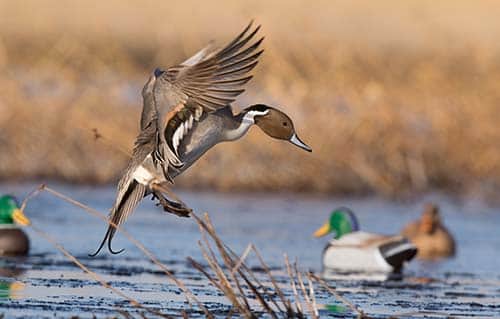
Course Features
Videos
Delta Waterfowl’s Duck and Goose Hunting 101 course features a combination of professional instructors, entertaining and informative storylines, and up-to-date information to provide you with the skills and knowledge you’ll need to enjoy your first waterfowl hunt in the season ahead.
Watch this 2-minute introduction video to the Delta Waterfowl Hunting 101 Course.
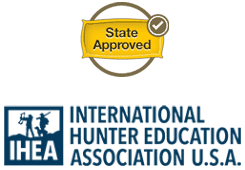
Comprehensive Waterfowl Hunting Training
The creators of Delta Waterfowl’s Duck and Goose Hunting 101 course work with International Hunter Education Association-USA (IHEA-USA), more than 45 state agencies responsible for hunter education, and various industry partners to develop comprehensive online hunter safety courses that teach students important laws and regulations, game identification, and safe, responsible firearm handling. You can be confident that you are receiving the most comprehensive waterfowl hunting education available online.

Learn Your Way on Any Device
Today's Hunter offers online courses that are fully mobile-friendly from start to finish. This safety course is designed to work on your smartphone, tablet, laptop, or desktop computer.
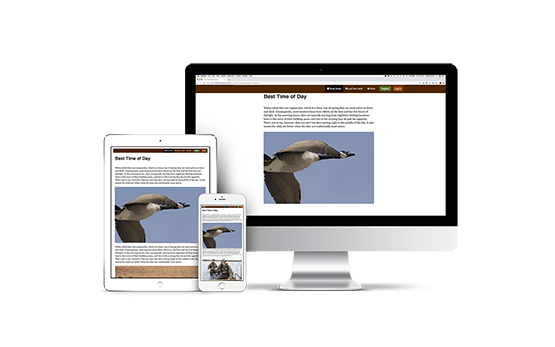
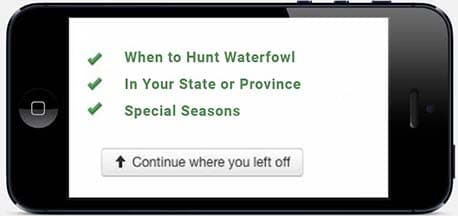
Saved Progress
You may complete the course at your own pace. The course can be completed in one sitting or a little at a time over several days. Log in and out at any time, and we'll keep track of your progress. Most students finish the course in a few hours.

